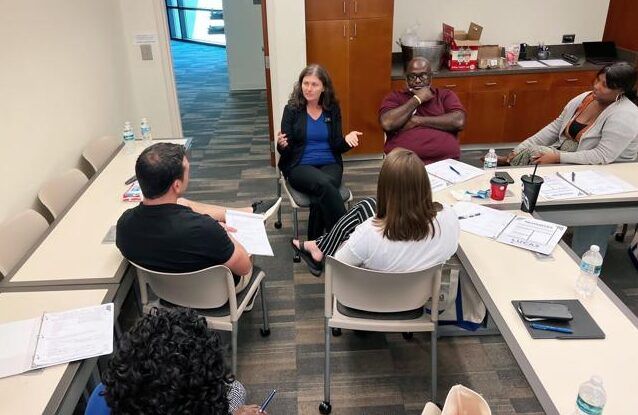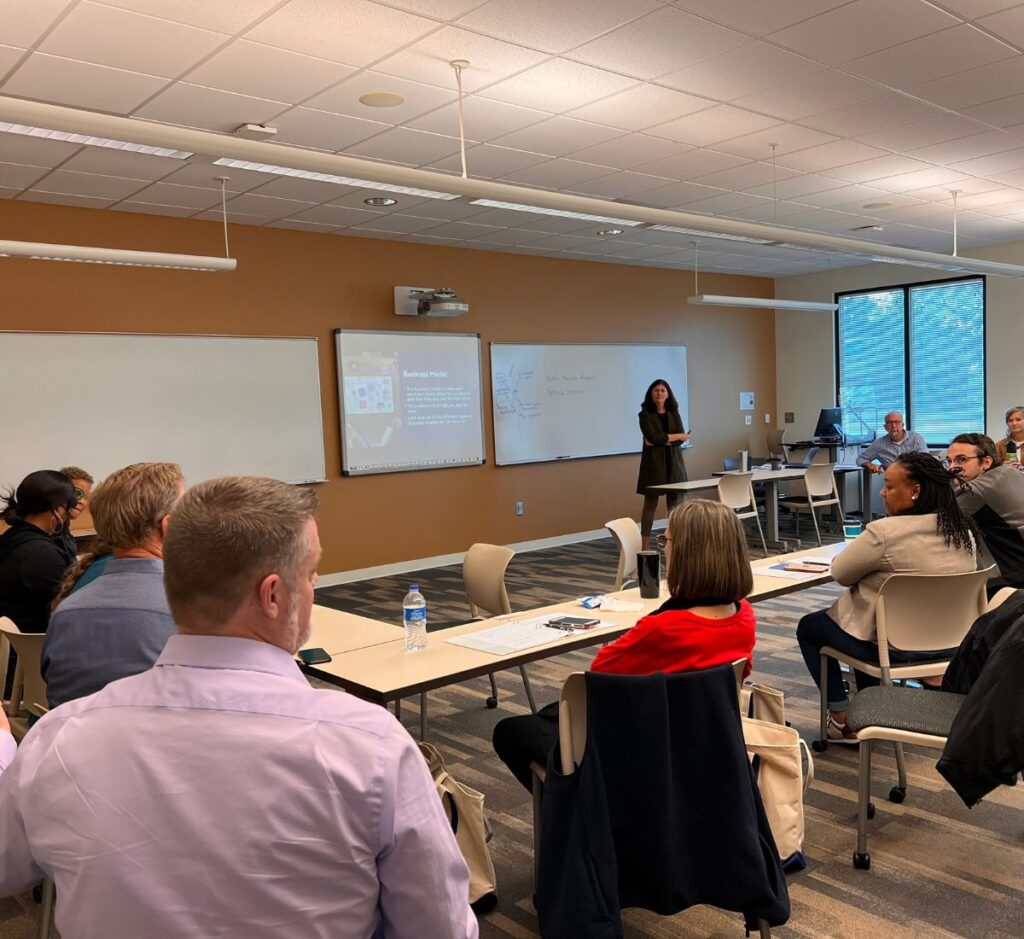
College Supports Local Economic Growth and Entrepreneurship
When Ande Noktes moved to Brunswick in 2022, she hit the ground running in her effort to meet local entrepreneurs and learn what they need to be successful.
Noktes, the first executive director of the Art and Lindee Lucas Center for Entrepreneurship at College of Coastal Georgia, would attend First Friday, a monthly event in downtown Brunswick, and spend time meeting and talking with entrepreneurs in attendance. Today, though, it takes her about three hours to make it all the way down Newcastle Street, as there’s many more people to meet and greet.
“It used to take me like 30 minutes to walk from one end to the other,” she said. “It now takes three hours because I feel like I know all of the entrepreneurs, and it’s really beautiful to see that growth.”
Downtown Brunswick is a hotspot for local business growth with many entrepreneurs bringing new ideas and development opportunities to the area.
College of Coastal Georgia plays a significant role in the area’s economic growth. This is done by offering job opportunities, bringing students to the area, partnering with local businesses and nonprofits through service-learning programs and more.
CCGA’s economic impact over the past five years has been over $500 million. But the college’s role in economic growth goes further than that, said Michelle Johnston, president of CCGA.
“Our students come from all over the state of Georgia, from 35 states and 38 countries, but over 70% stay in the coastal Georgia region after graduation,” she said. “We are preparing excellent nurses, teachers, cybersecurity and law enforcement officers, scientists, psychologists, hospitality and tourism professionals, accountants, entrepreneurs and business leaders — and so much more — who make a difference in our community.”
During students’ time at CCGA, they work in groups led by their professors with area agencies, businesses and organizations to serve specific needs, Johnston said.
“These service-learning efforts have included more than 650 projects with over 190 partners resulting in 100,000-plus hours of active engagement by our faculty and students in this area,” she said.
The Lucas Center for Entrepreneurship and Reg Murphy Center for Economic and Policy Studies are two other examples of outreach efforts that bring expertise and knowledge from the college into the community, Johnston said.
The Lucas Center’s variety of programming plays a critical role in supporting business growth in the area and cultivating an energy that leads to exciting changes.
“When I first moved here, I heard two things over and over again from our community,” Noktes said. “One was ‘I have an idea but I don’t know where to start,’ and the other was ‘I already have a business and I’m really good at whatever I do in my business — barbecue or sewing or consulting or whatever — but I’m struggling with the fundamentals of business and that’s holding me back from reaching my goals.’”
The Lucas Center has designed and rolled out two programs aimed at addressing both specific needs.
The first, an Idea Bootcamp, is a one-day program that brings in participants with a business and sends them off at the end of the day with a startup plan.

“From that program, about half of the entrepreneurs who go through it end up starting their business and earning revenue from starting the business. It’s been a super successful program. We run it several times a quarter, both here in Brunswick but also in adjacent counties.”
Follow-up support after the bootcamp is provided through individuals coaching and consulting for the entrepreneurs.
“Regardless of where they are in their business journey, they can schedule time with me and come in for that one-on-one support,” Noktes said, adding that this service is free.
The Lucas Center also offers a successful Acceler8 program, which lasts eight weeks and aids businesses in accelerating growth goals.
“The average aged business for our Acceler8 program is just over five years, so we have some people who have been in business for decades and some people who are just a year in,” Noktes said. “Regardless, they’re able to go through this eight week program, set some really clear goals and then can reach those goals by the end of the program.”
The cohort this semester is split between for-profit businesses and nonprofits in order to offer more specific guidance to two.
Story written by Lauren McDonald of The Brunswick News.
Republished with the permission of The Brunswick News.